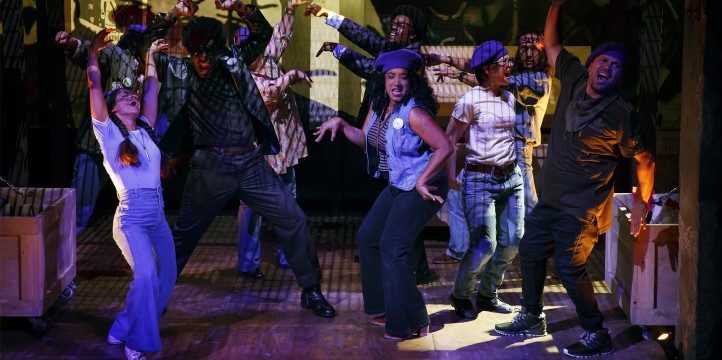From James Shapiro, Shakespeare Scholar in Residence at The Public Theater
These excited lines are spoken by Imogen, the remarkable heroine of Shakespeare’s late romance, Cymbeline. She speaks these words in Act 3, scene 2 of the play, immediately after opening a letter from her exiled husband, Posthumus, which is delivered to her by their trustworthy servant Pisanio. In that letter Posthumus urges Imogen to meet him at Milford Haven, in Wales. Imogen so longs to be reunited that she wishes that a winged horse could transport her to him. But it’s a complicated and bittersweet moment, for as thrilling as it is to share in Imogen’s excitement about their reunion at Milford Haven, the audience knows from earlier in this scene that Posthumus—who has been tricked into believing Imogen has been unfaithful --has ordered Pisanio to accompany Imogen to Wales in order to kill her there. One of the defining feature of Shakespeare’s late plays is the fluidity and prose-like quality of his iambic pentameter lines, and Imogen’s excitement and her impatience are perfectly conveyed in her start-and-stop, self-interrupting and breathless style, as her questions for Pisanio quickly pile up.













